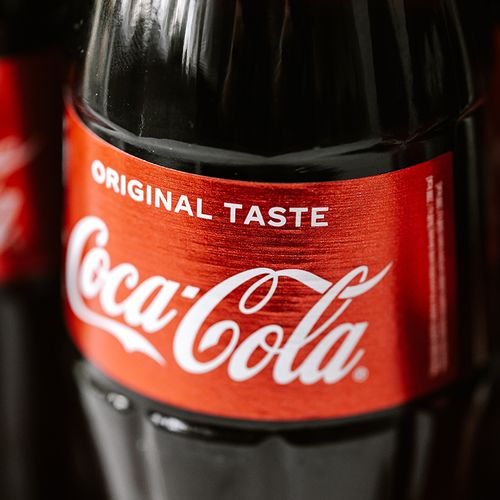We hear a great deal about the best dietary strategies to help prevent heart disease and diabetes. But what about kidney disease?
Recent development: For the first time, researchers have identified some of the key eating habits that help prevent the onset of kidney disease.
Why this is important: Kidney disease, which affects all the body's main physiological functions, significantly increases one's risk for serious medical conditions such as cardiovascular disease, including heart attack and stroke...sexual dysfunction...and bone fractures. What you need to know…
Key Facts About The Kidneys
The kidneys are fist-sized organs that remove waste (about two quarts) from the approximately 200 quarts of blood that are processed daily. Each kidney contains about one million filtering units-tiny, delicate networks of blood vessels and tubes that are easily damaged by diabetes, high blood pressure and other chronic diseases.
Kidney Damage Occurs Slowly
Like hypertension and diabetes, kidney disease can progress over decades. Patients can lose up to 75% of their kidney function without experiencing kidney disease's eventual symptoms, which include fatigue and loss of appetite, difficulty concentrating, muscle cramps, swelling in the feet and/or ankles and/or low urine output. Increased risk for heart attack and stroke begins when kidney function has declined by about 50%-further declines usually require medication, dialysis or a kidney transplant.
Losing weight if you're overweight and following very specific dietary strategies are among the best ways to prevent kidney disease-and to minimize further damage if you are one of the 26 million Americans who already have it. Obesity increases the risk for hypertension and diabetes, which are the two most common causes of kidney disease.
Key dietary approaches recently identified by researchers…
- Drink fewer sugar-sweetened drinks. In a recent unpublished analysis of data from a 25-year study of young adults, Loyola researchers found that those who drank just 35 soft drinks or other sweetened beverages, such as energy drinks or fruit drinks, per week were 150% more likely to develop kidney disease than those who didn't drink them.
It's possible that the sweet beverages' high concentration of fructose, in particular (in refined sugar and high-fructose corn syrup) is responsible for the increased risk.
My advice: In general, Americans consume too much sugar. Switch to diet soft drinks.
Even better: Choose unsweetened beverages, such as water with a lemon slice.
- Eat less animal protein. In our analysis, people who ate an average of more than 1.5 servings a day of red meat or processed meat were 139% more likely to develop kidney disease than those who ate less than that. In patients with kidney disease, reducing overall protein intake lessens stress on the kidneys and can delay disease progression and the need for dialysis.
My advice: If you have kidney disease, consider working with a nutritionist to find healthful ways to limit daily protein to 40 g to 50 g. Fish (salmon, herring, mackerel and sardines) and lean meats provide high-quality protein with less saturated fat than you would get from typical red meat. Some research suggests vegetarian diets are especially beneficial for people with kidney disease.
For prevention: Include the most healthful protein sources. For example, beans and whole grains provide not only high-quality protein but also antioxidants, vitamins and minerals.
- Consume much less salt. For many people, a high-salt diet is a main cause of high blood pressure—a leading risk factor for kidney disease.
My advice: Even though some recent research raises questions about universal sodium restrictions, most health organizations recommend limiting daily sodium intake to 2,300 mg.
For some people with hypertension, reducing salt to 1,500 mg daily can lower systolic (top number) and diastolic (bottom number) pressure by about 11 points. That's comparable to the reduction that typically occurs with the use of antihypertensive medications.
- Drink low-fat milk. A study published in the American Journal of Clinical Nutrition that looked at 2.245 participants found that those who consumed the most low-fat milk, along with other low-fat dairy products, reduced their risk of developing hypertension by about 7%. Keeping one's blood pressure under control also contributes to healthy kidneys.
It's possible that the proteins and minerals (such as calcium) in dairy foods are responsible. Even though full-fat dairy contains the same minerals and proteins, the higher level of saturated fat may offset the benefits.
My advice: Check the USDA's Web site, www.choosemyplate.gov, for general guidelines regarding daily intake of low-fat or nonfat dairy.
- Limit phosphorus intake. The RDA for phosphorus in adults is 700 mg daily. However, the average adult consumes about twice as much because phosphorus is found in nearly every food-and it's added to processed foods to preserve colors and improve taste and/or texture.
Healthy adults excrete excess phosphorus. But in those with impaired kidney function, phosphorus can accumulate and cause conditions such as hyperphosphatemia, a buildup of this naturally occurring element that can lead to accelerated bone loss.
My advice: If you have kidney disease, ask your doctor if you need to lower your phosphorus levels-and work with a nutritionist to find the best ways to stay within healthy limits. It's wise for everyone to stay away from processed foods. In general, foods that are high in protein, such as meats, are also high in phosphorus. So are cola soft drinks, starchy vegetables and hard cheeses.
Important: To avoid high-phosphorus processed foods, look for "phos" on food labels. High-phosphorus additives include phosphoric acid, calcium phosphate and monopotassium phosphate.
